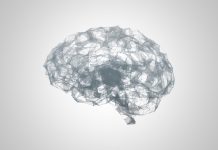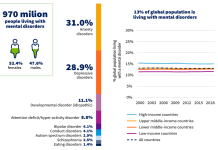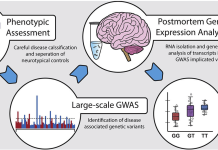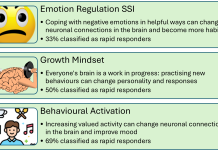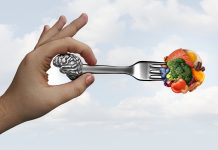Open Access Government produces compelling and informative news, publications, eBooks, and academic research articles for the public and private sector looking at health, diseases & conditions, workplace, research & innovation, digital transformation, government policy, environment, agriculture, energy, transport and more.
Home 2025
Archives
Consideration of key issues in positioning early intervention for eating disorders
Tracey Wade from the Flinders University Institute for Mental Health and Wellbeing outlines several key issues to consider in developing successful early intervention approaches for people with disordered eating and who are at risk of developing an eating disorder.
Prevent filicide: Intervention with potential perpetrators
Thea Brown, Professor Emeritus at Monash University, investigates the flaws in service interventions related to filicide cases and highlights methods to bolster early interventions to prevent potential perpetrators.
Computational psychiatry and the opioid crisis: A deep dive
In this interview, we speak with Dr. Bo Cao, a leading expert in computational psychiatry at the University of Alberta, Canada. Dr. Cao discusses how advanced data analysis and machine learning are transforming our approach to the opioid crisis and mental health care, offering new hope in addressing one of North America’s most pressing public health challenges.
How new programs help veterans reconnect after service
Dr William T. Howe from Texas Tech University outlines recent developments in reintegration and communication among United States military veterans.
The impact of bible use on human flourishing among U.S. Military members
The impact of Bible use on human flourishing among U.S. military members is detailed by Sung Joon Jang and Byron R. Johnson from Baylor University and Pepperdine University.
Five tips to implement self-compassion for healthcare workers
Self-compassion is not a cure-all for systemic challenges within the health system, but it can enhance resilience, social support, and self-efficacy among healthcare workers, ultimately improving their quality of life in the workforce.
Solutions for better sleep
Dr Lianne Tomfohr-Madsen highlights sleep health equity research to inform best practices and policies to improve the sleep of all Canadians.
Forensic program: Mental healthcare through songwriting
A therapeutic guitar group at the Royal Ottawa Mental Health Centre’s Integrated Forensic Program evolved from a pilot project into a unique songwriting initiative that enhances participants’ mental well-being and social connections through music therapy.
Mental health and self-care: A comprehensive guide
This short guide explores the importance of self-care for good mental health and provides practical tips for implementing self-care strategies.
Data integration: A key to understanding the biological basis of mental disorders
ses two key advancements in genome-wide association studies (GWAS) and gene expression data to better understand the biological basis of mental disorders.
Filicide: The search for explanations
Thea Brown, Professor Emeritus in the Department of Social Work at Monash University, examines the development of research aimed at understanding filicide.
Early intervention for eating disorders
Tracey Wade, Matthew Flinders Distinguished Professor, provides an insightful examination of the significance of brief early interventions in the treatment of eating disorders.
Suicidal thoughts and actions: We need a new model
Konrad Michel, MD, Psychiatrist from the University of Bern, Switzerland, discusses the clinical approach to suicidal patients, providing a new look at a human phenomenon.
Empowering voices: Breaking mental health stigma
John Hoey and Mary Cannon from Department of Psychiatry, RCSI University of Medicine and Health Sciences, Dublin, Ireland, share their research around breaking mental health stigma to empower voices.
Advancing knowledge about criminal justice and mental health
Researchers with expertise in criminal law, philosophy, psychiatry and psychology are combining their knowledge to explore how mental disorders are approached within criminal law and contribute to better legal and forensic practices.
Understanding and predicting the intergenerational transmission of mental illness
The FAMILY consortium aims to improve the lives of mentally ill persons and their families by focusing on understanding the mechanisms of intergenerational transmission of mental illness from parent to child.
Tuning into musicians’ wellbeing: Research on music performance anxiety (MPA)
The Music and Mental Health Research Clinic (MMHRC) at the University of Ottawa’s Institute of Mental Health Research (IMHR) at The Royal is investigating how to reduce music performance anxiety (MPA) and the benefits of specific coping strategies for musicians.
Filicide: The most tragic family violence event
Thea Brown, Professor Emeritus AM from Monash University, Caulfield in Australia, guides us through filicide, the most tragic family violence event.
Early intervention in eating disorders
Tracey Wade from Flinders University, charts an implementation approach to early intervention in eating disorders.
A promising approach to preventing developmental dyslexia
David Mather, an Independent Researcher at the University of Victoria, has a promising approach to preventing developmental dyslexia. Discover more here.



